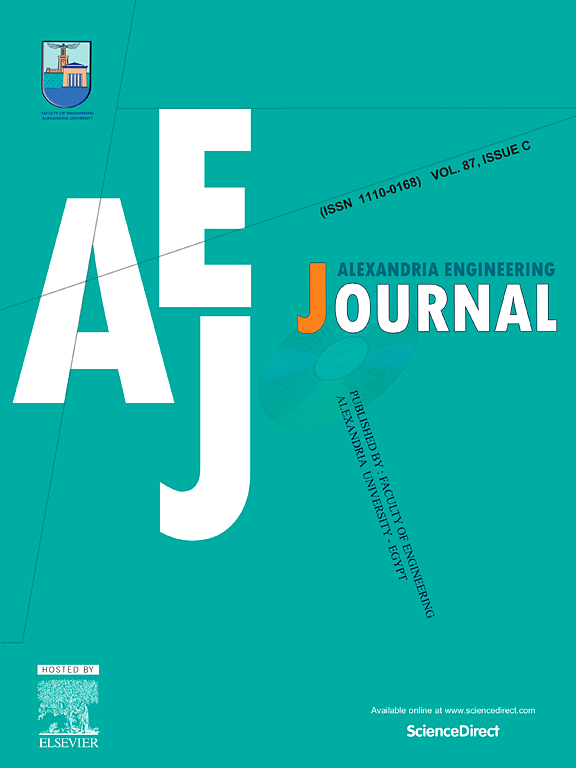A deep learning ICDNET architecture for efficient classification of histopathological cancer cells using Gaussian noise images
IF 6.2
2区 工程技术
Q1 ENGINEERING, MULTIDISCIPLINARY
引用次数: 0
Abstract
Histopathology image classification is crucial in pathological diagnosis workflow for early detection and treatment. The integration of deep learning technology has greatly improved diagnostic accuracy and efficiency. However, there are limitations when morphological features are not obvious in pathological sections, leading to difficulties in identifying deep cells and an increased risk of misdiagnosis. To address this issue, this study introduces a new hybrid network model, termed ICDNET, designed to fuse global and local features without destroying the integrity of the feature data, thus enhancing the accuracy of medical image classification. The ICDNET model consists of two main features: (i) a serial hierarchical structure composed of global and local feature blocks; and (ii) an Internal Communication Hierarchical Fusion Block (ICHF) and an Efficient Dual Self-Attention (EDA) mechanism. This network structure solves internal communication issues and enriches contextual semantic information, extracting local features and global representations from different internal spaces. To evaluate the performance of the ICDNET network model, experiments were conducted on four major public datasets with the addition of Gaussian noise. The experimental results demonstrate excellent accuracy and the ability to handle limited training samples, highlighting the potential of the ICDNET model to assist pathologists in pathological diagnosis.
利用高斯噪声图像对组织病理学癌细胞进行高效分类的深度学习 ICDNET 架构
在病理诊断工作流程中,组织病理学图像分类对于早期发现和治疗至关重要。深度学习技术的融入大大提高了诊断的准确性和效率。然而,当病理切片的形态特征不明显时,就会出现局限性,导致难以识别深部细胞,增加误诊风险。针对这一问题,本研究引入了一种新的混合网络模型,称为 ICDNET,旨在融合全局和局部特征,同时不破坏特征数据的完整性,从而提高医学影像分类的准确性。ICDNET 模型由两个主要特征组成:(i) 由全局和局部特征块组成的串行分层结构;(ii) 内部通信分层融合块(ICHF)和高效双自注意(EDA)机制。这种网络结构解决了内部通信问题,丰富了上下文语义信息,从不同的内部空间提取了局部特征和全局表征。为了评估 ICDNET 网络模型的性能,我们在四个主要的公共数据集上进行了实验,并添加了高斯噪声。实验结果表明,ICDNET 网络模型具有极高的准确性和处理有限训练样本的能力,凸显了该模型协助病理学家进行病理诊断的潜力。
本文章由计算机程序翻译,如有差异,请以英文原文为准。
求助全文
约1分钟内获得全文
求助全文
来源期刊

alexandria engineering journal
Engineering-General Engineering
CiteScore
11.20
自引率
4.40%
发文量
1015
审稿时长
43 days
期刊介绍:
Alexandria Engineering Journal is an international journal devoted to publishing high quality papers in the field of engineering and applied science. Alexandria Engineering Journal is cited in the Engineering Information Services (EIS) and the Chemical Abstracts (CA). The papers published in Alexandria Engineering Journal are grouped into five sections, according to the following classification:
• Mechanical, Production, Marine and Textile Engineering
• Electrical Engineering, Computer Science and Nuclear Engineering
• Civil and Architecture Engineering
• Chemical Engineering and Applied Sciences
• Environmental Engineering
 求助内容:
求助内容: 应助结果提醒方式:
应助结果提醒方式:


